Story for the Week
One year, 4 months, 12 days. That’s how long we prepared to lose him, but we still weren’t ready. We could never be ready.
On May 9, 2019, the floor fell out of our world when my husband was diagnosed with pancreatic cancer. At 12:24 p.m. on September 20, 2020, the ceiling caved in when we lost him to respiratory failure after he contracted pneumonia.
I have spent six weeks dissecting those 16 months, thinking about every decision we made, about every time I lost my patience, about every time he asked me if this was the beginning of the end and I told him no and really believed it. My head knows that we made the right choices. We took the recommendations of a doctor we believe in. We sought a second opinion at the top facility in our state, which is one of the top facilities in the country. We put our trust in the doctors and did everything they asked. We put our faith in God. My heart, however, is still managing through the what-ifs.
Dennis had a lot of time for a pancreatic cancer patient. Only 10-20% of pancreatic tumors are fully resectable when they’re discovered, and his tumor was considered borderline resectable because it was touching the portal vein. The protocol in that situation is what they call neoadjuvant chemotherapy to shrink the tumor so the surgeon can get around it. Even then, the average life span after surgery is 2.5 years with only 20-30% of patients surviving five years. Without surgery, the five-year survival rate is 6-9% depending on where you look for information.
We started chemo right away, and while Dennis had a lot of fatigue and some nausea, he didn’t suffer a lot of the more common side effects. He wasn’t vomiting. He didn’t lose his hair, although it thinned and went gray. He never lost his appetite. Three months into chemo in August 2019, they did another scan, and while the pancreatic tumor had shrunk, the scan showed three lesions on his liver, which took surgery off the table when the biopsy results came back. When the surgeon told me there were even more lesions than they saw on the scan covering both lobes of the liver, he said to me, “That’s why this disease is such a sonofabitch.” I can’t say that I disagree with him.
Over the next year, as one regimen of chemo would fail, they would try a new one. Dennis went through three different therapies, and our oncologist told us that most patients don’t get to the third regimen because they are too weak to tolerate the treatment. When the third treatment failed and one of the tumors on his liver doubled in size, we reconnected with the doctor we saw for the second opinion at Northwestern in Chicago. He had a clinical trial, and in the few weeks that Dennis was off chemo and doing all the tests they needed for the trial, he felt great, he was cycling, and you still wouldn’t have known he was sick except that he had started to have some back pain.
Dennis had to go through a variety of tests before starting the trial, and Northwestern called after a chest CT to ask about COVID symptoms because it looked like Dennis had a ground glass pattern in his lungs. Because he didn’t have any other symptoms and had previously tested negative, they chalked it up to a possible upper respiratory infection or inflammation from the chemo.
After our daughter’s confirmation (A Statement of Faith by Corinne Ahyee), Dennis started to feel wheezy, which could have been his asthma and allergies since the confirmation service was held outside. He used his nebulizer for a few days, but when his oxygen saturation dropped to the high 80s, our doctor recommended he get tested again for COVID. We had been excruciatingly careful, and Dennis was literally only allowed to go out to the doctor. He was adamant that he didn’t have COVID (he was right) but agreed to be admitted to the hospital for testing the Friday before Labor Day.
He had pneumonia.
How he picked it up, we don’t know. We were out a lot in the weeks leading up to the clinical trial to places we didn’t normally frequent, and his immune system was shot from the cancer and the chemo. It’s possible it was a result of the cancer or the chemo as well. There’s really no way to know.
They put him on a steady stream of steroids and antibiotics in the hospital. He started to improve and actually came home with oxygen on the 14th, but he declined really quickly from there. In two days, he became so weak that it took his brother and me a full hour to get him from the bedroom to the car when he asked us to take him back to the hospital on the 16th. They tested him again for COVID, and he was still negative. He was always negative.
I was convinced that he just needed a little more time to heal because he was so compromised, but he kept asking if he was dying. (It feels now like he knew.) His chest X-ray in the ER that night was worse than the week before, and the ER doctor asked about intubation if it was required. Dennis had been intubated in the past because of his asthma, and he was adamant that he didn’t want that or a ventilator, especially since they told us they weren’t sure they could get him off a ventilator.
When I asked the ER doctor how worried I needed to be and if I should get our daughter in to see him that night, she made the exception to let Corinne come up even though they weren’t allowing visitors in the ER and she was clearly under 18. I started to cry because I knew then that it was really bad, and she told me she was sorry. I was scared, but when I left the hospital at 4 a.m. on the 17th after getting him settled in a room, Dennis was stable. He was weak and only semi-lucid, but he was stable.
Dennis was never one to mince words, and when I arrived back at the hospital at 10, he greeted me with, “I’m dying.” He told me that he had asked his pulmonologist that morning if he was dying and she told him yes. When she came in to talk with me 20 minutes later, I told her what Dennis said to me, and she confirmed it. She had been treating him for years, so she wasn’t about to start sugar-coating anything at that point.
I asked her how long we were looking at. She said we weren’t talking about only hours, but she figured that it would be a matter of days. That took my breath away. Even though I knew from the night before that it was bad, he was stable when I left, so I held onto that. All this time, we had been thinking in months, not days. So this was it. This was going to be how it ended.
I texted my brother-in-law and told him to come to the hospital with Corinne when her remote classes were finished for the day. I emailed her guidance counselor and got her extensions on her homework and excused from her classes on Friday. From that point, the only time Dennis was alone was when we went downstairs to get something to eat or when his brother and I switched places in the middle of the night. We sat with him, we talked to him even after he couldn’t answer anymore, and we loved him.
I’ve learned a lot about pancreatic cancer since last year. What I didn’t know is that “pneumonia is the most common infection in cancer patients,” and “historically, respiratory failure remains the most common cause of death in critically-ill oncology patients,” according to a June 2019 article posted on the National Center for Biotechonology Information website. It wouldn’t have changed anything if I had known, except to make me more scared when he was admitted, but I might not have been so shocked with the “matter of days” part.
After Dennis’s last chemo regimen failed, we asked our oncologist about a prognosis. He said that, if Northwestern didn’t have something that worked, Christmas would be a stretch. I was hoping for that stretch. I asked the same thing at Northwestern—in the doctor’s experience and knowing what he knew about the progression of Dennis’s disease, what were we looking at in terms of time if the trial failed. He told us “Median? Three months.” This was late July, so Christmas was definitely a stretch, but I was still hoping for the stretch.
Dennis received only one infusion of the trial drug the week before he was admitted, and it hadn’t even had time to start working. Our oncologist was certain based on what he saw on the scans that this started prior to the infusion, especially based on the original chest CT for the trial. It just progressed ridiculously fast. On August 19, Dennis posed for a photo before a bike ride in his new Skittles cycling jersey. He loved that jersey, and I said it was perfect for his sense of humor because it said “Taste the Rainbow” right above his behind.🤦♀️ He felt great. He actually felt better than he had since before he started chemo. But a month later, he was gone.
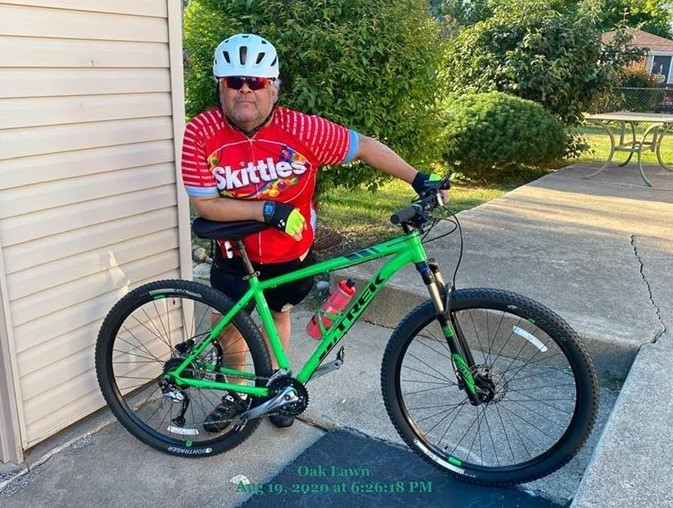
Dennis and I had just over 18 years together. It wasn’t enough. I wanted more. I knew for 16 months that we were going to lose him, but I wasn’t ready. I’m still not ready. I don’t think I’ll ever be ready.
We’ve had some tough days and have more ahead of us. Our daughter desperately hoped he would be here for her birthday, and the only thing she really wanted is something she can’t have. Thanksgiving is coming and Christmas. Dennis really loved Christmas. It was his favorite holiday. We’ll decorate this year like we always do. We’ll get a new customized family ornament for the tree like we do every year. But it will feel strange, and I know it will be hard.
On the day the surgeon told me about the liver lesions, while I sat in the waiting room, I finished the ARC I had been reading. It was a good book, and I gave it a 4-star review. I never shared the review though because I felt like putting the title out into the universe was just a bad idea then. It’s not a book about losing a loved one, but the title really sums up how I feel right now.
We will always love you, Dennis Ahyee, and it won’t be Christmas without you. 💜💔💕

Resources:
- American Cancer Society
- Pancreatic Cancer Action Network
- Robert H. Lurie Comprehensive Cancer Center of Northwestern University
- ClinicalTrials.gov
Special thanks to Dennis’s vast network of doctors and nurses who have been with us throughout his health journey. You are truly heroes.
- Dr. Rohinee Beri, pulmonology
- Dr. Bassem Chaar, oncology
- Dr. Imad Elkhatib, gastroenterology
- Lynn Flynn, oncology
- Jamie Glynn, oncology
- Dr. Renee Lantner, allergy and immunology
- Dr. Devalingam Mahalingam, oncology
- Dr. Marc Mesleh, general surgery
- Dr. Neilesh Shah, Amanda, and Victoria, primary care
- Dr. Joseph Stella, cardiology
- All of the nurses and staff at Affiliated Oncologists in Chicago Ridge and Advocate Christ Medical Center in Oak Lawn
- The clinical trial team at Robert H. Lurie Comprehensive Cancer Center of Northwestern University
Book Review
⭐⭐⭐⭐
4 Stars for It Won’t Be Christmas Without You by Beth Reekles
300 pages
Publisher: HarperImpulse
Publication Date: October 31, 2019
I received an advance copy of this title from NetGalley and HarperImpulse.
Publisher’s Description
Eloise, a self-confessed Christmas obsessive, can’t wait for the big day. Devoted to her Michael Bublé playlist, she’s organizing the school nativity play and even her gorgeous Grinch of a neighbor, James, can’t get her down.
Her workaholic twin sister, Cara, on the other hand, plans to work over the holiday. The sisters used to be close but since Cara moved to London, everything’s been different.
Eloise isn’t giving up just yet. With James’s help and a white Christmas on the cards, Cara can’t fail to be moved by the magic of the season … can she?
************
If you’re looking for a quick and fun Christmas read, Beth Reekles’ It Won’t Be Christmas Without You should do the trick. This is the story of Eloise and Cara, twins who are struggling to figure out how to spend Christmas together.
The story is fast-paced with a lot of dialog. The chapters alternate between the two, so it’s easy to just keep reading and reading. Both girls have their love interests, which is how we learn their different personalities. And while they are the classic description of twins who talk about everything with one another, they still keep their insecurities to themselves, which is what causes the conflict that is inevitable in a story like this one.
A nice story with a predictable happily ever after, and definitely worth the read if you’re in search of a feel-good holiday story.
If you enjoyed this post, please comment below. Subscribe for regular updates, and share it with your friends. If you’re interested in starting a conversation, send an email to booksundertheblanket@gmail.com.
As an Amazon affiliate, I earn a small commission at no cost to you when you make a purchase using the links on my site.

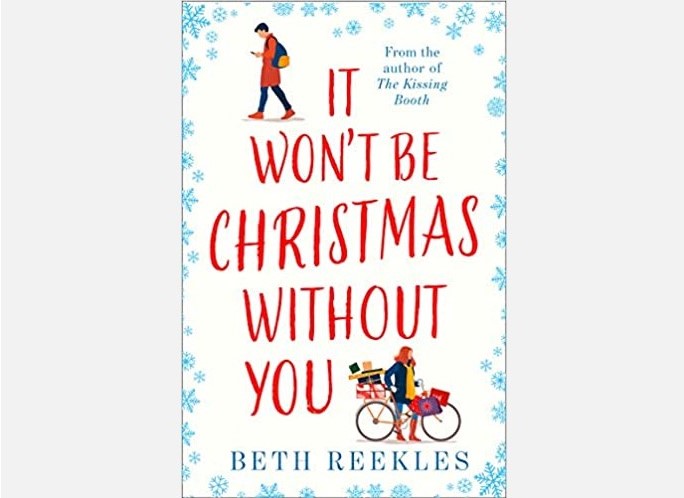
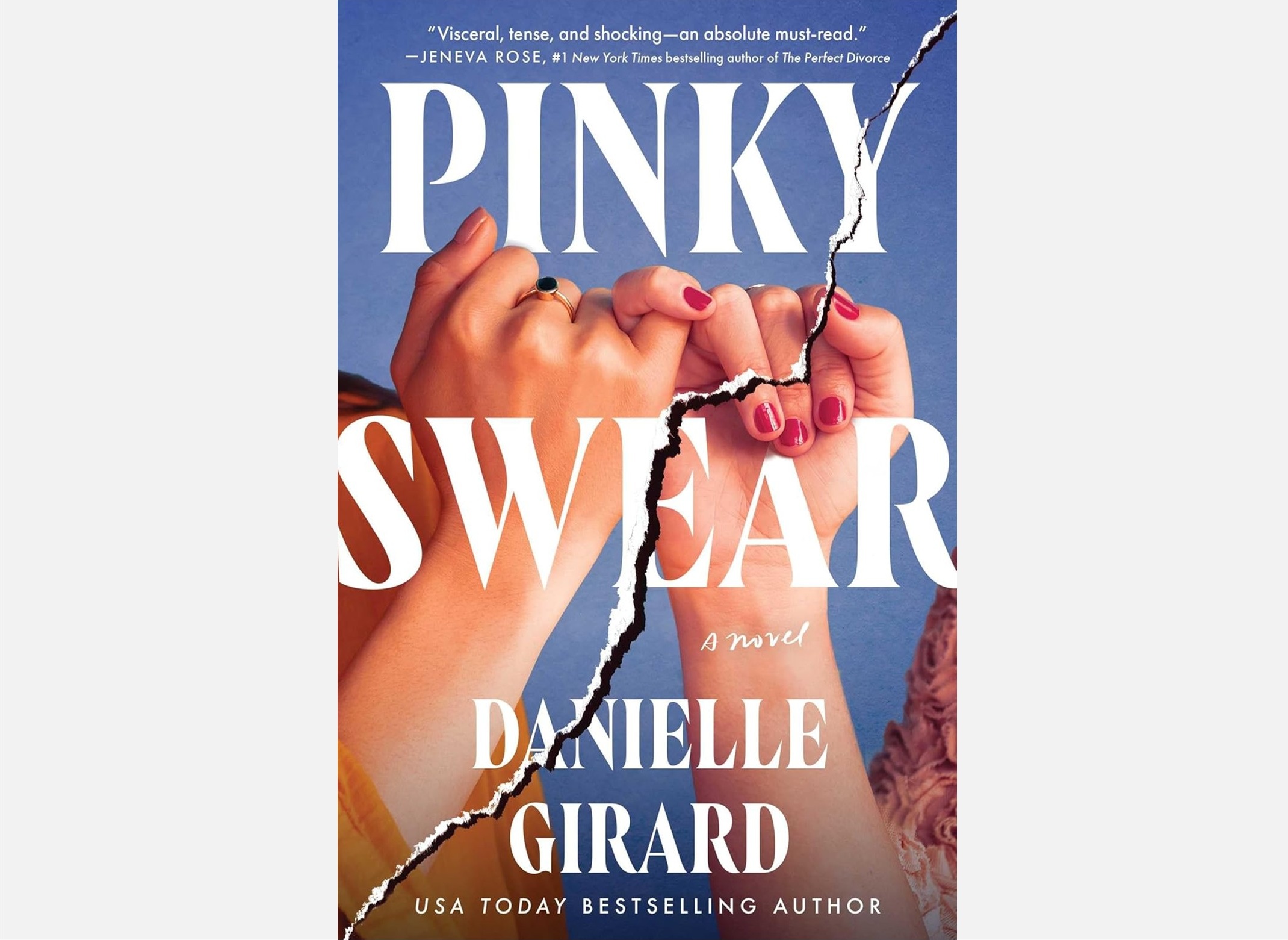
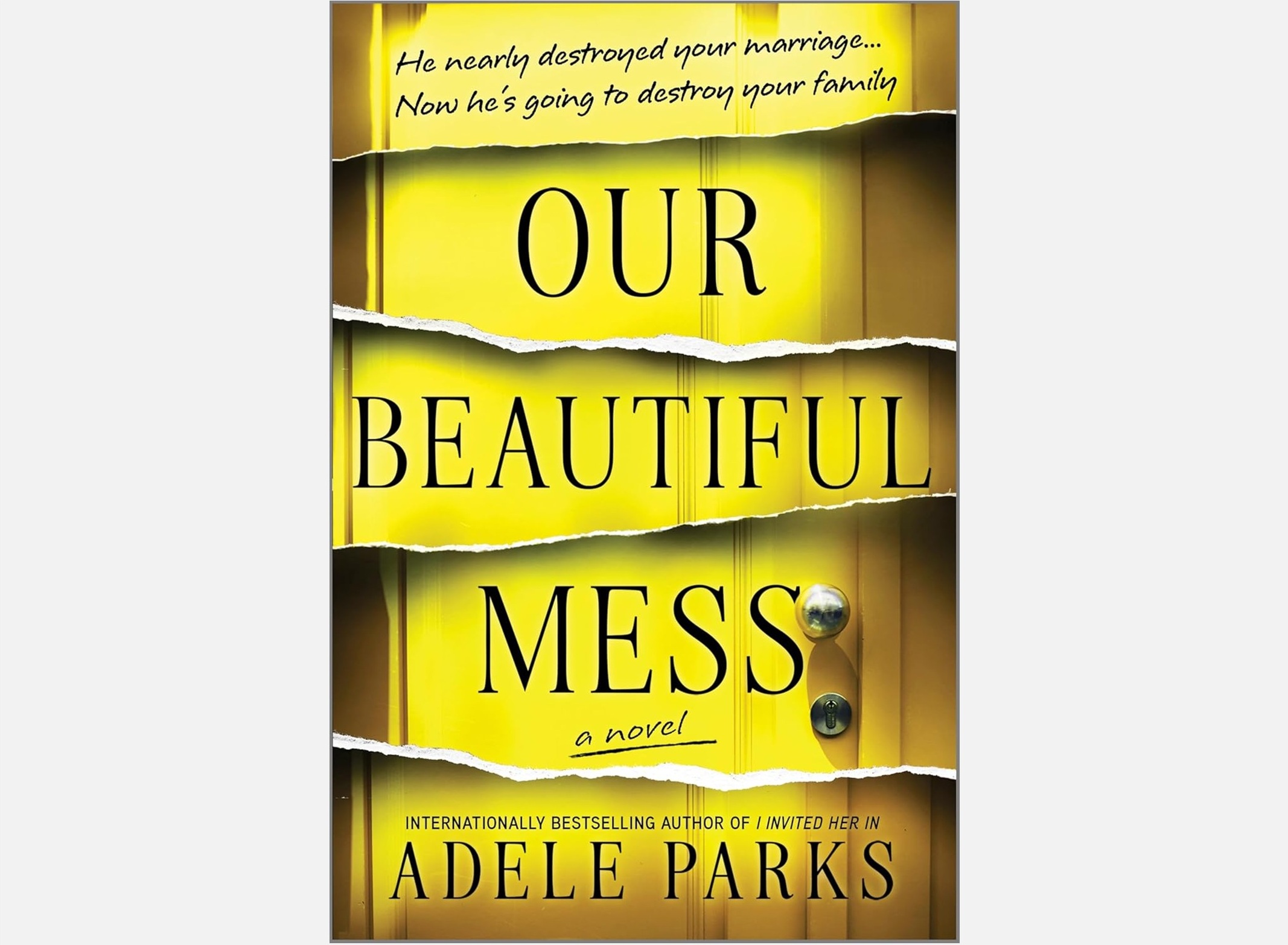
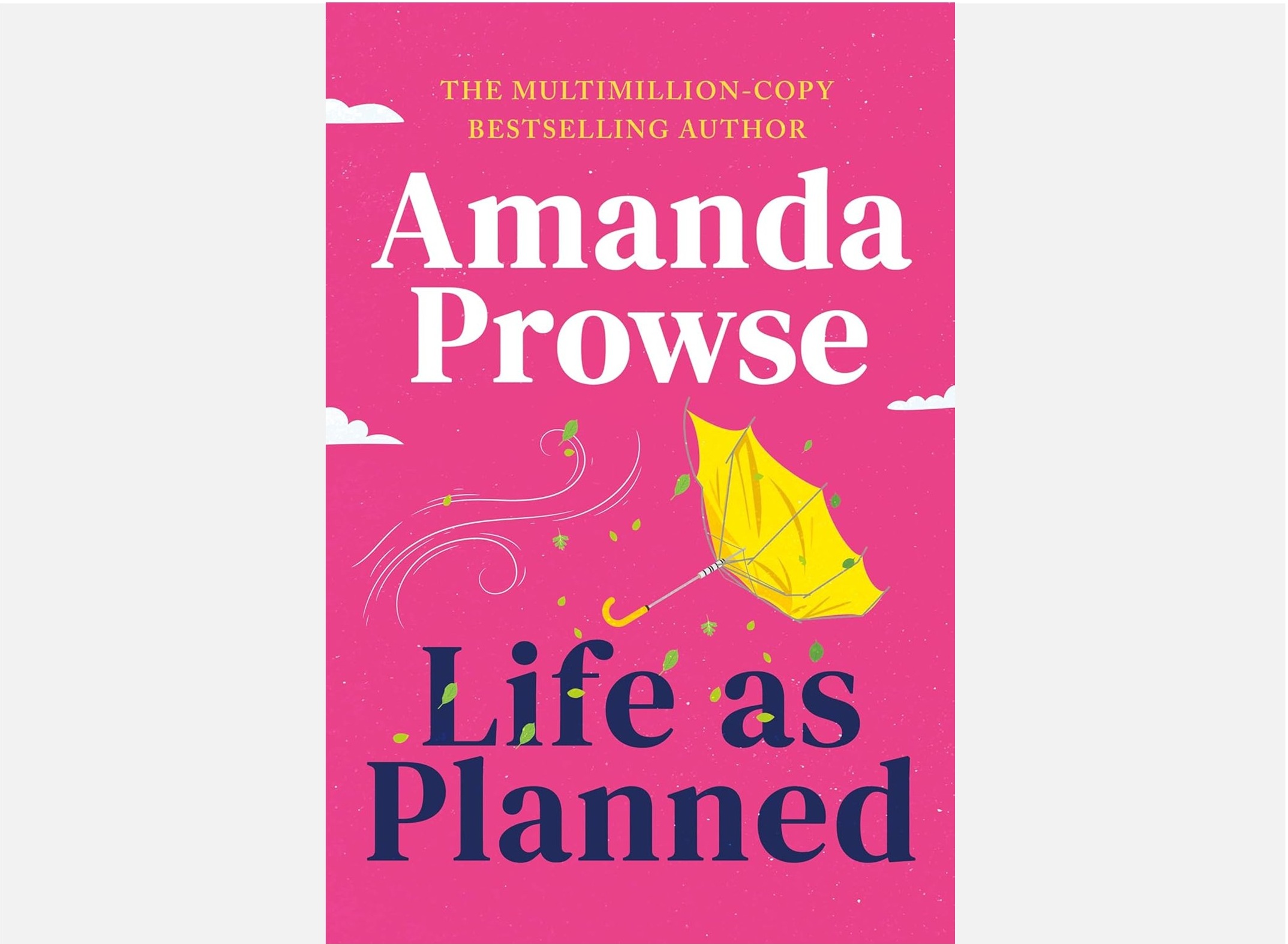
Thinking of you often ❤️
💜
Just want you to know that I am thinking about you and sending my love.
💜